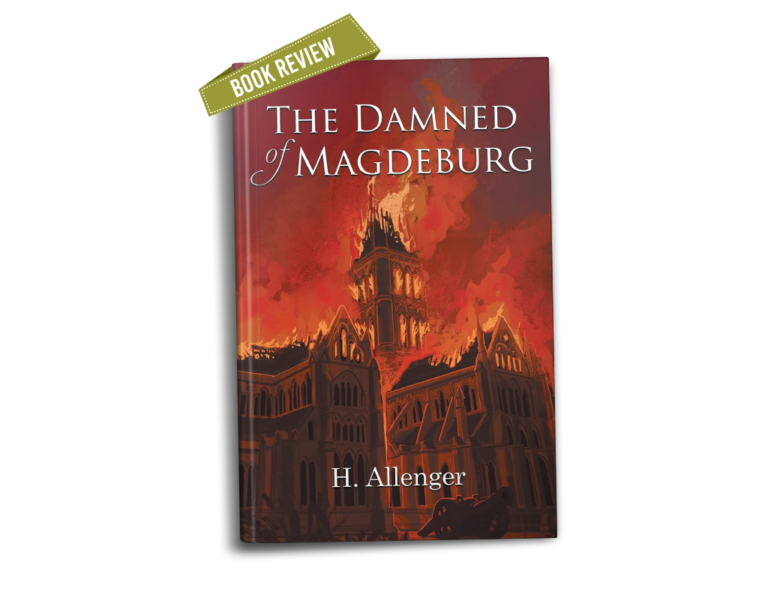Home » The Damned of Magdeburg | Reviewed by Kara Dennison for IndieReader


In the months leading up to the sack of Magdeburg in 1631, the town’s citizens—the titular DAMNED OF MAGDEBURG—face down their own impending doom and the allure of cardinal sin.
The sack of Magdeburg is considered the worst massacre of the Thirty Years’ War—so brutal that the city did not recover for centuries. With a deep knowledge of this particular tragedy in mind, author H. Allenger seeks to put a human face on the event in THE DAMNED OF MAGDEBURG. Populated by fictional characters alongside notable historical figures, this work of fiction seeks to explore an all-too-familiar theme: the behavior of people in the face of danger.
The concept of the seven cardinal sins is referenced throughout the book. These sins, while not the worst one can commit, form the bases of these soul-damning offenses. The book focuses largely on the circulation of four women and their families. Margarethe and Susannah are close friends, though their husbands are at odds, putting their long-time friendship in danger. Isolde is considered the most beautiful woman in Magdeburg, and is called upon to charm the King of Sweden into defending their town. And Lorelei, surviving on a widow’s pension, becomes lover to more than one of these women. As the men of the town attempt to curry favor and defend the city walls, they contend with the toll the potential impending attack takes on their lives. Fights and domestic abuse break out between married couples. Susannah, robbed of her friendship with Margarethe, begins an affair with Lorelei. Men of God steal from churches, and envy runs rampant as social standings change by the day. Through it all, the people of Magdeburg question the fate of their souls, or lack thereof.
The concept of THE DAMNED OF MAGDEBURG is an intriguing one, but the execution is dry. The dialogue and narration are stilted and unnatural, with characters’ thoughts and motivations laid out almost clinically, either in spoken words or exposition. For a story about the human condition, there isn’t much that feels human about it. The few scenes of passionate lovemaking are, unfortunately, emotionless at best and nearly comical at worst. The ending also does not land the way it intends to, at least when comparing the story as written to the author’s postscript explaining the intent. While the historical research that went into it is admirable, the rest falls flat. It’s a shame, as the theme of justification for tragedy is both relatable and important. While it’s a sentiment that will perform well in this day and age, there is a scarcity of realistic humanity in this book with which to connect.
While THE DAMNED OF MAGDEBURG demonstrates author H. Allenger’s grasp on the history of the Thirty Years’ War, the stilted writing and lack of emotion leaves its core message somewhat wanting.
PAYMENT METHODS
